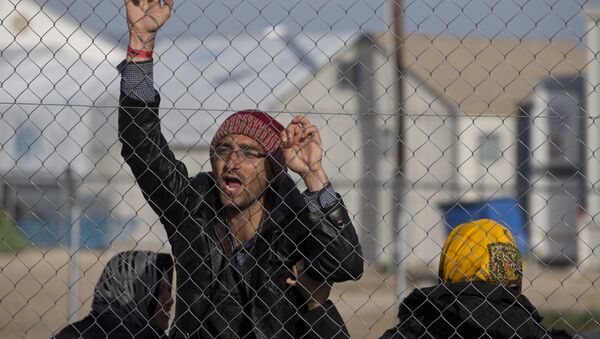German Interior Minister Horst Seehofer, leader of the conservative, Bavaria-based Christian Social Union, has admitted to procedural errors at his subordinate Federal Agency for Migration and Refugees (BAMF), which lead to illegal deportation of a 20-year-old Afghan asylum seeker.
According to Seehofer, the authorities misclassified the identity of the man. As the administrative court in Greifswald in the Northern German state of Mecklenburg-Vorpommern stated, his asylum process was still being reviewed, so he should not have been deported.
The BAMF announced that it wanted to bring the deportee back and initiate the necessary steps, according to agency spokeswoman Eleonore Petermann, as cited by the local broadcaster NDR. The BAMF contacted the lawyer of the asylum seeker, the state of Mecklenburg-Vorpommern and the German embassy in Kabul. Meanwhile, the case has been taken as an opportunity to "review and adapt" existing processes in the agency, according to the BAMF.
The young man was sent back to Afghanistan at the beginning of July with a group of 69 Afghans, whom Germany had rejected asylum, although his appeal against last year’s rejection is slated for review in September. The Nuremberg authorities first sent the asylum decision on his plea to the wrong address. After that, the migration agency assumed that the asylum decision had been legally rejected and the man had filed his lawsuit against the rejection too late, as the local authorities weren't notified about the case's development.
The press hype rose after the NRD report at the behest of the deportee’s lawyer, a member of the German Parliament representing the Social Democrats, Sonja Steffen. Although she welcomed the decision to return her client back to Germany, she stated that in Afghanistan he was in constant fear because his family is being threatened by the Taliban.
This dispatch of Afghan migrants has already made headlines and evoked criticism of the BAMF and Interior Minister Horst Seehofer after the made a remark about “69 deported refugees on his 69th birthday,” while presenting his set of immigration policy improvements. Politicians from SPD, the Greens and the left-wing party Die Linke lambasted the official for his 'lack of humanity and cynicism' and called on the Chancellor to dismiss him. The uproar was fueled with reports that a young Afghan man who'd been convicted of assaults and theft in Germany and sent back to his homeland had killed himself upon arrival.
READ MORE: German Parties Urge Seehofer to 'Clean Up Mess' as Petition Demands Resignation
This topped the heated discussions over Seehofer’s proposal to adopt a stricter refugee policy, which he summed up in his “Masterplan Migration.” Strongly opposed by Angela Merkel, her Christian Democratic Union and its social democrat SPD coalition partners, the proposal to turn away refugees registered in other EU countries, brought the long-time CDU/CSU alliance to the verge of collapse. The scenario could be averted as the coalition partners, Merkel's CDU and the SPD, managed to reach a common ground on migration issues by agreeing to turn down certain asylum-seekers on the basis of bilateral agreements with other EU countries.
Since the “open borders policy” was announced and Germany accepted more than 1 million migrants from the Middle East and Northern Africa, the BAMF has been criticized for failing to effectively handle the migrant influx. It found itself amid more controversy after it was revealed that its office in Bremen allegedly granted asylum to more than 1,200 seekers mostly from the Iraqi Kurd community, who had failed to meet the necessary criteria, in exchange for bribes between 2013 and 2017. In April the local prosecution service stated that six people, including the former director of the center, were being investigated for corruption. In June, former BAMF head Jutta Cordt and her deputy Ralph Tiesler were fired.


